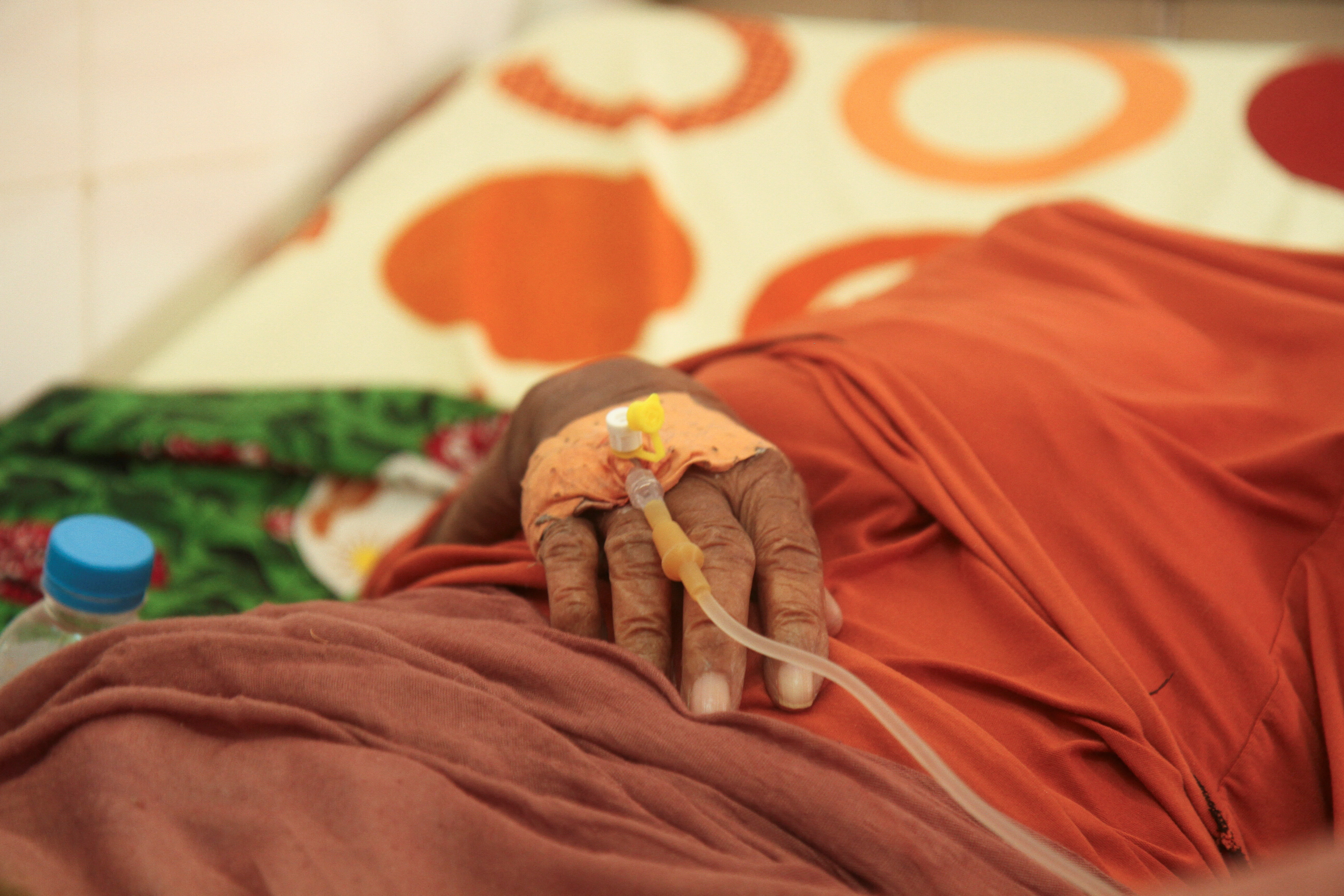How to fight the COVID-19 infodemic: lessons from 3 Asian countries

Singapore's Prime Minister Lee Hsien Long addresses the nation in April
Image: REUTERS/Edgar Su
Elmie Nekmat
Assistant Professor and Principal Investigator, National University of Singapore Centre for Trusted Internet and CommunityAudrey Yue
Deputy Director, National University of Singapore Centre for Trusted Internet and Community
Explore and monitor how COVID-19 is affecting economies, industries and global issues
Stay up to date:
Media, Entertainment and Information
- The dangerous spread of disinformation about COVID-19 must be tackled alongside the virus itself.
- New research from the National University of Singapore reveals the most successful strategies used to do so by three Asian countries.
What makes the current pandemic more dangerous than any before is that the spread of rumours and false information on the internet is even faster than that of the coronavirus itself.
Sylvie Briand, director of the WHO's Infectious Hazard Management department, could not have better emphasized the need for governments to battle this parallel yet more vicious outbreak – that of the "infodemic", or information epidemic.
“Insidious confusion” caused by the fact that disinformation on the coronavirus is “mutating and spreading faster than the virus outbreak itself” – coupled with an avalanche of user-generated content on social media – obfuscates critical information, stimulates speculation and fearmongering, and makes finding the truth seem impossible.
As a flight to safety, this state of informational disarray has led to people becoming more reliant on mainstream news organizations and authoritative sources for accurate information about the coronavirus and the various national agendas in response. Leveraging this situation, governments have the opportunity to gain public trust by displaying effective leadership to safeguard their people from the information epidemic via news media and official statements.
We reviewed more than 5,000 news articles related to the coronavirus published in two of the most-read news outlets in three Asian countries that have been fighting the coronavirus outbreak since its outset - Xinhua Daily and People’s Daily in China, Chosun Ilbo and Hankyoreh in South Korea, and The Straits Times and Channel News Asia in Singapore – and our research has revealed five main strategies employed in the battle against the COVID-19 infodemic.
China came out tops in showing how the government will not hesitate to crack down on those who produce and disseminate false information during the outbreak. Citizens were constantly reminded of the arsenal of laws that can be readily invoked to prosecute those found guilty of such acts.
Criminal prosecutions related to the outbreak were shared regularly with the public. News reports detailed how, within the week from 20 to 27 February, the number of cases tried for crimes related to false information had doubled in China - with everyone in those cases found guilty and prosecuted.
The Singapore government similarly showed that it will not resist the use of law. Under the country’s Protection from Online Falsehoods and Manipulation Act (POFMA), no less than four parties were issued informational correction orders for spreading online falsehoods within the first two months of the outbreak.
In an unprecedented move, POFMA exemptions for internet intermediaries were promptly lifted – requiring Google, Facebook, Baidu and Twitter to comply with POFMA directions to immediately correct cases of misinformation being spread on their platforms.
Singapore has led the way in producing advisories in news sources in order to correct rumours and misinformation, and by requiring those found to have violated POFMA to publicly correct their falsehoods online.
Singapore was followed here by South Korea, which primarily focused on debunking rumours via news sources in the form of FAQs and interviews with experts, government officials and health authorities.
Singapore further showed how a whole-of-government collaboration involving five separate ministries was able to create informational advisories accessible to different segments of society through diverse platforms – from official fact-checking sites to Facebook and Instagram pages belonging to government ministries and officials, government-driven message push channels in WhatsApp, right down to digital display panels in residential areas.
Beyond hardline authoritative measures, the governments of Singapore and China have also called for support from individuals and local communities to battle against the information epidemic as one.
In Singapore, top state figures including the President and Prime Minister have repeatedly reminded people of the “great service [they are performing] for other Singaporeans” by being socially responsible and by not spreading rumours about the coronavirus. As in China, Singapore's leaders have constantly urged everyone to play their part to halt fearmongering by not speculating on unofficial information.
Schools and teachers have been roped in to support these socially-driven interventions. Across Singapore, programmes were implemented as part of character and citizenship education to teach the importance of verifying the authenticity of information related to the coronavirus.
In China, news reports have described how teachers have written to their students to remind them of other students whose parents had died or were in quarantine, and how they should show care for their friends by not creating panic and spreading rumours about the coronavirus.
The Chinese media and government have been distinct in framing science and rationality as “the most powerful weapon” in tackling COVID-19. The precision of science was promoted as the indispensable force in the fight against the virus, with the use of scientific information key to stopping the outbreak of conspiracy theories, irrational evidence and misleading rumours.
As Chinese leaders extolled the country’s ability to rid the coronavirus through scientific and technological prowess, the media promoted a slogan on the infodemic battlefront claiming that “rumours end with the wise”.
Accept our marketing cookies to access this content.
These cookies are currently disabled in your browser.
South Korea was most engaged in highlighting the plight experienced by other countries due to false information. From tales of humans becoming zombies in Singapore to ‘scientific’ evidence of viral transmissions via goats and sheep in Iran, no less than 10 countries were referenced in South Korean news sources to compare how other countries were similarly - if not more so - struggling with the scourge of fake news about COVID-19.
Even more conspicuous is how South Korea has responded to attacks on China’s handling of the infodemic crisis. Against this backdrop, the South Korean government has rallied its people against the "Chinese phobia phenomenon" arising from China’s rumoured inability to handle the global disinformation outbreak and associated conspiracy theories.
The COVID-19 infodemic has emerged and spread alongside the coronavirus across the globe. As governments over the world draw on every available resource to prioritize and protect the health of their people, it is also crucial that governments should not lose sight of safeguarding the same people from being ‘infected’ by rumours and misinformation.
From strict laws, timely corrective advice, social responsibility and education, to drawing on the rationality of science and referencing similar experiences from other countries, news outlets have become exemplary conduits through which governments should communicate strong leadership in the battle against the COVID-19 infodemic, in order to build public trust – which will be key in uniting the people during this global pandemic turmoil and beyond.
Don't miss any update on this topic
Create a free account and access your personalized content collection with our latest publications and analyses.
License and Republishing
World Economic Forum articles may be republished in accordance with the Creative Commons Attribution-NonCommercial-NoDerivatives 4.0 International Public License, and in accordance with our Terms of Use.
The views expressed in this article are those of the author alone and not the World Economic Forum.
Related topics:
Forum Stories newsletter
Bringing you weekly curated insights and analysis on the global issues that matter.
More on Health and Healthcare SystemsSee all
James See
November 7, 2025
Shyam Bishen
November 5, 2025
Naveena Nekkalapudi
October 31, 2025
Mariam Adebayo
October 30, 2025
Alexandros Pantalis
October 30, 2025






